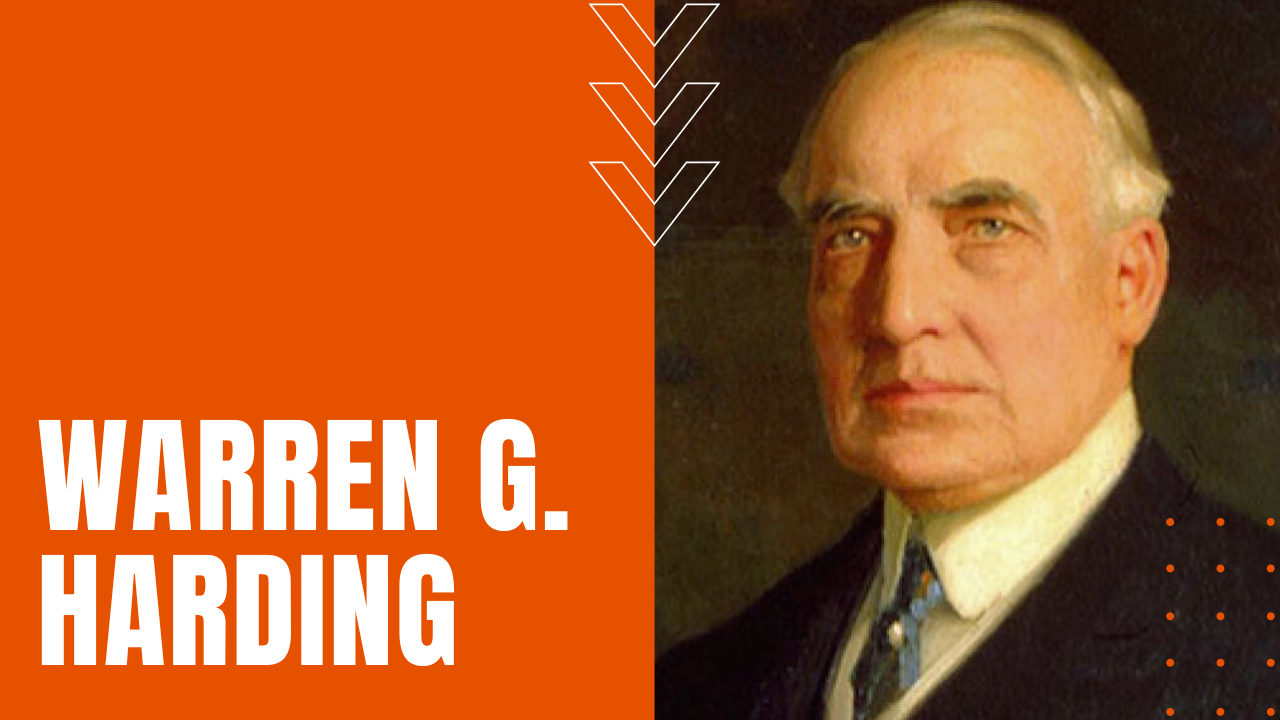Warren G. Harding

Born in 1865 Corsica Ohio, Warren G. Harding went on to attend the now-defunct Ohio Central College in 1882, before moving to Marion and landing a job as a reporter. Three years after marrying Florence Kling De Wolfe in 1881, Harding and several business partners purchased the struggling Marion Star newspaper, turning it into a thriving success with the help of his wife’s business acumen and marketing skills.
First Political Office
Winning an Ohio Senate seat in 1898 for the next five years, in 1904, Harding became Ohio’s lieutenant governor for a two-year stint, before losing his gubernatorial bid in 1910. Gaining national attention following his nomination speech at the Republican National Convention for President William Taft’s second term, Harding was elected into the U.S. Senate in 1914, holding his seat until his election to the White House in 1921 alongside Massachusetts Governor Calvin Coolidge as his running mate, winning 60% of the popular vote and a landslide electoral margin.
Return to Normalcy
Advocating for a “return to normalcy” following a nation’s bloody involvement in the First World War, Harding followed a pro-business conservative Republican agenda, reducing taxes on corporations and wealthy Americans, while severely limiting immigration and imposing heavy import tariffs on goods competing with American industries. He also signed the Budget and Accounting Act of 1921, which streamlined the federal budget system, while establishing the General Accounting Office to audit federal expenditures, at the same time hosting a post-war naval disarmament summit for the world’s leading powers of the day.
Scandal-Plagued Cabinet
While Harding’s cabinet appointments of Secretary of Commerce Herbert Hoover and Secretary of State Charles Evans Hughes were viewed as outstanding choices, other cabinet members became embroiled in scandals or misconduct, and while Harding was never accused of misconduct beyond alleged extramarital affairs and alcohol consumption in the White House, after his sudden death from a possible heart attack in 1923, his posthumous image was tarnished by such corrupt acts as the Teapot Dome Scandal, when Interior Secretary Albert Fall rented public lands to oil companies in exchange for lavish gifts and personal loans.
A Nation Mourns
After his death in a San Francisco hotel, Harding’s body was returned to Washington, D.C. on a funeral train, which drew massive crowds of mourners trackside as the train moved east for Harding’s well-attended funeral, making the life and tragic death of Warren G. Harding, a sudden end for America’s 29th president.
